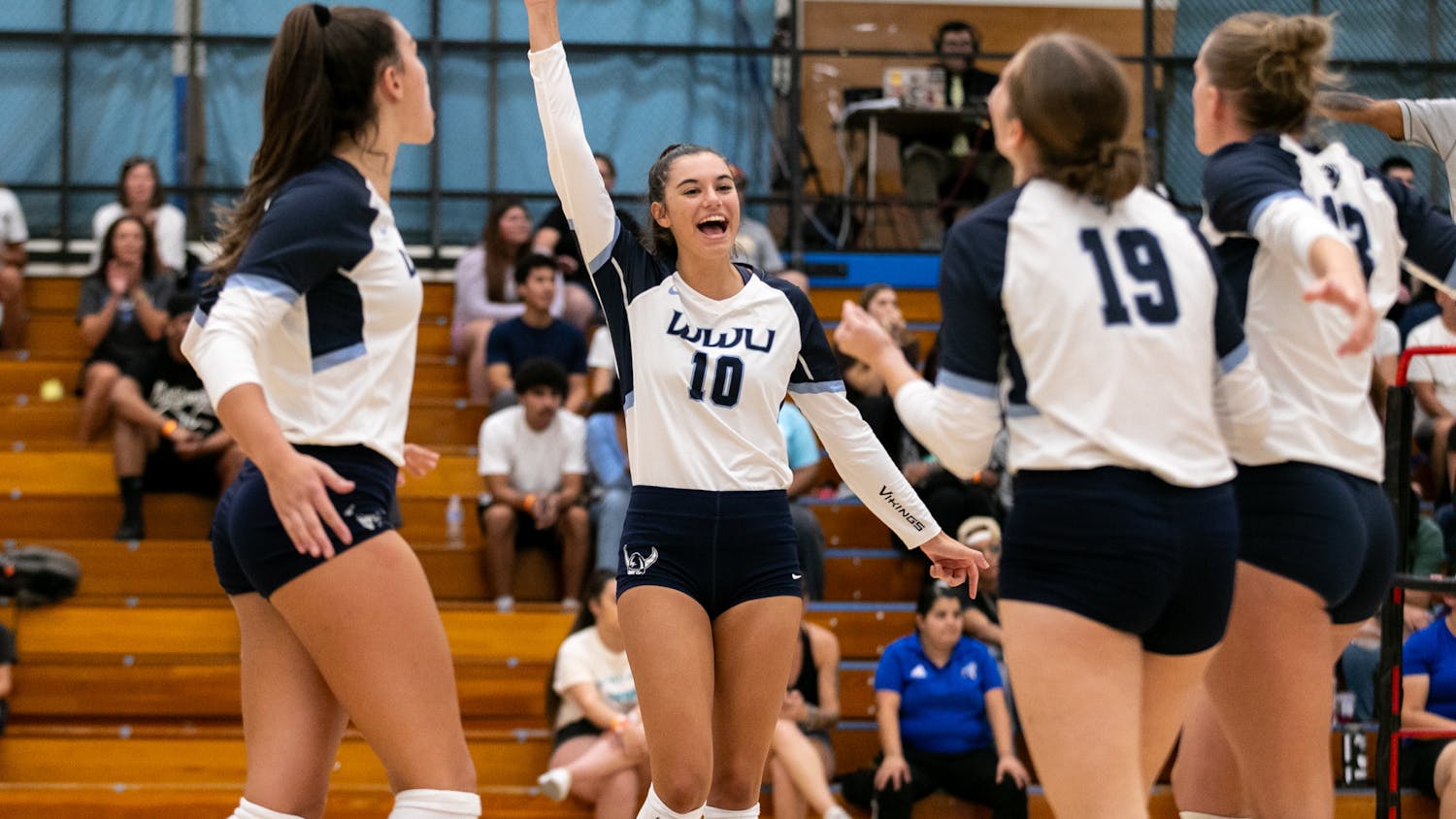The FACET cohort smiles outside of Miller Hall. // Photo courtesy of FACET
Naomi Schapiro“How can we expect students to learn and be their best selves when they haven’t eaten dinner, or don’t know where they are going to sleep the next night?”
Joohee Choi said.
Serrano said she is hoping as more cohorts take FACET classes, they will go through the rest of their educational careers being more socially aware. She thinks this should become the new standard for educators. That social awareness comes with attention and sensitivity toward students who belong to historically- marginalized groups. This matters to Serrano, who said she came to Western from Enumclaw, a predominantly white community, where she was often one of few students of color in her classroom. She said the increased diversity at Western was a huge culture shock to her. “Growing up in such a white community, I didn’t really have representation growing up,” Serrano said. “Of someone like me, who is mixed, someone who is Latinx is a huge thing.” Serrano wants to be that representation for future students, even though she said when she tells people she wants to be a history teacher, they usually respond by telling her how boring that sounds. But for Serrano, teaching history the right way can actually be very interesting. She said this is how she thinks about school overall: if it is taught in the right way, it should be something students enjoy. “Students are not just empty buckets to be filled with information,” Serrano said. “We have to help them to understand things and develop their learning.” Choi, on the other hand, came from a very diverse high school in Federal Way, so she had a culture shock coming to Western due to the comparative lack of diversity. She said it really opened her eyes to how she wants to approach being a teacher. In Choi’s opinion, school has remained relatively static over the years, and she said she wants to use her experience with FACET to open up conversations surrounding changes most people are scared to have. Among them are diversity, access to resources and equality. “How can we expect students to learn and be their best selves when they haven’t eaten dinner, or don’t know where they are going to sleep the next night?” Choi said. “You need to take care of them as a person before you can expect them to perform.” In class, they shared stories of past struggle and its impacts. They had numerous guest speakers, such as Special Assistant to the Superintendent for Family Engagement Isabel Meaker,Serrano said. A project that stood out to Serrano was one where they were each assigned to a school in the Bellingham School District. They also were assigned a case study of a family, and using the resources they learned about, had to figure out how the family would survive, Serrano said. Serrano was assigned to Cordata Elementary School, which is close to Costco, Fred Meyer and Whatcom Community College, but the houses in the area were really expensive, she said. They also looked at data on race/ethnicity distribution and test scores from the school. John Korsmo, FACET’s faculty advisor, said the club is already making a difference. “The development of this club by the students provides me and my colleagues who have been working toward this FACET initiative with inspiration, energy and hope,” Korsmo said in an email. Korsmo added that he is incredibly proud of this group of students. “They are absolute game-changers, with a commitment to better serving students with emphasis on those who have traditionally been most marginalized,” Korsmo said. One of the big things that FACET wants to focus on is rethinking schools, Choi said. “Changing the way education is and changing the way educators approach being a teacher,” Choi said. “Instead of classrooms being teacher-oriented, they should be more student-oriented and aware of what is going on in students’ lives.” While still a young club, FACET is growing as Education 101 opened back up this spring. New students in the course became a part of the the second FACET cohort, which works together with the original group for club activities, Serrano said. At the first club meeting in April, the two cohorts worked on building trust and getting to know each other, Choi said. They introduced themselves and played two truths and a lie. She said it can be hard to have the deep conversations needed for FACET without having that trust. That trust is important,Serrano and Choi said, because difficult conversations need to be had in order to start taking action toward a more progressive education. Then comes the hard part: not just talking about it. “We can sit around and discuss these issues all day, but that won’t do anything unless we get our hands dirty and help people,” Serrano said. “That is a huge thing that a lot of us are passionate about.” While the FACET classes are primarily for students going into education or human services, the club is open for anyone to join. “It is not just future educators and human service professionals who have opinions on these issues. We have all gone through an educational institution,” Serrano said. “We all have stories to tell. We can all learn from each other.” Choi said the club’s goals are ones almost anyone can get behind, particularly when thinking about future changes to the educational system. “The generations that follow are going to be the ones to lead society,” Choi said. “So your kids, grandkids, nieces and nephews, they are all going to be affected by the way that we form education for them. Even if you personally aren’t interested in education, you should still be interested in the generations that will follow.”




